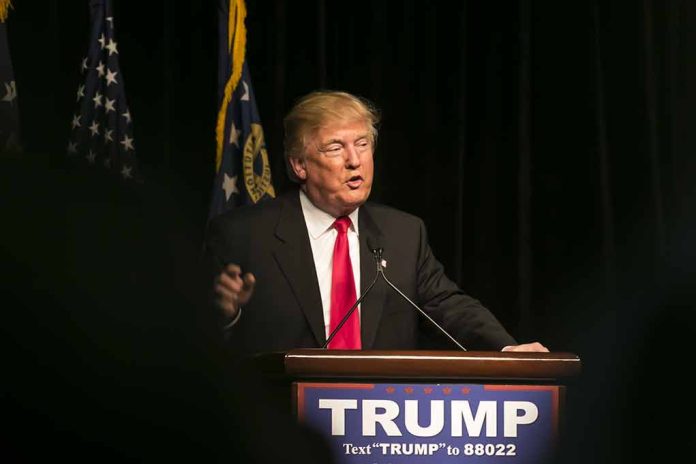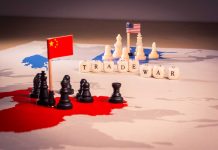
President-elect Donald Trump is urging NATO European allies to make fair financial contributions or face potential U.S. withdrawal from the alliance.
At a Glance
- Trump demands greater financial contributions from NATO European members.
- A two-tier NATO system may condition U.S. defense guarantees on spending compliance.
- Discussions gain significance amid geopolitical shifts like Syria’s regime collapse.
- Potential focus shift from Europe to countering threats from China.
Trump’s Stance on NATO
In a post-election interview with NBC’s Kristen Welker, President-elect Donald Trump criticized the North Atlantic Treaty Organization for exploiting the United States in both trade and defense. Trump stressed the importance of European countries increasing their financial contributions, warning that the U.S. would remain in NATO only if it receives fair treatment. His demands highlight concerns over perceived inequities in alliance expenses borne by the U.S.
Experts predict Trump, if reelected, is unlikely to fully quit NATO but would push for changes requiring higher spending from European nations. He highlighted that past pressure led to increased contributions, totaling over $600 billion, and that future participation hinges on European commitment to meeting financial expectations.
Potential Changes to NATO Structure
Trump’s proposals include a significant adaptation for NATO, with a “radical reorientation” and potential creation of a two-tier system. This system would limit U.S. defense guarantees to those countries meeting the 2% GDP defense spending target. This approach echoes criticisms that European allies aren’t sufficiently prepared to assume larger military responsibilities amid rising global defense needs.
“We’re supposed to protect you, and yet you’re paying all this money to Russia” – Donald Trump
Besides financial changes, a reduction in U.S. military involvement aims to refocus strategic attention on countering China. European officials, aware of these potential shifts, are urged to reinforce efforts for more independent defense capabilities in anticipation of Trump’s policy directions.
Relations with the EU
Trump’s return to the White House will pose a significant challenge for the European Union (EU). The US-EU relationship will become much less strategic and much less all-encompassing. Instead, EU and member state leaders will have to expend political…
— Atlantic Council (@AtlanticCouncil) November 6, 2024
Geopolitical Context and Implications
The discourse on NATO takes on more gravity given recent geopolitical events like the collapse of Syria’s Assad regime and ongoing tensions with Russia. Trump’s suggestive consideration of a deal with Russia to end the Ukraine conflict, possibly involving NATO non-expansion, raises questions about future defense policies. The emphasis on Europe’s increased defense role, amid such shifts, aligns with Trump’s broader strategic vision.
Trump has emphasized his critical view of NATO’s exploitation of the U.S., while European leaders are left contemplating how to adapt to these demands. Trump’s strategies, potentially redefining NATO and altering its traditional structure, focus on ensuring fairness in contributions and realignment of defense priorities.
Sources
1. Trump’s Plan for NATO Is Emerging
2. Trump Says NATO Allies Don’t Pay Their Share. Is That True?














